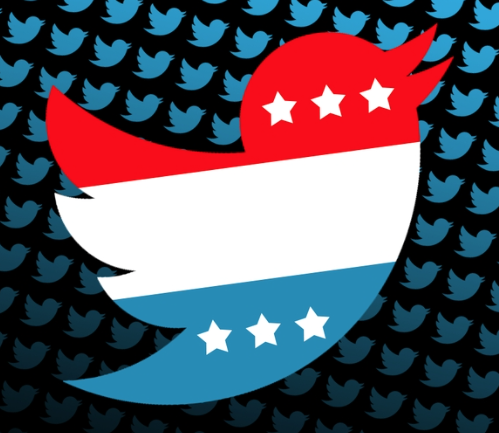#Winning: social media in the 2016 election

September 15, 2015
The race for the 2016 presidential candidates is on. However, the candidates have a different kind of race to run this campaign season: the social media race. Presidential hopefuls are contesting who can gain the most Twitter followers, Facebook likes and Snapchat story views.
Using social media is nothing new to presidential elections, but this year is different. The candidates are utilizing a greater number of platforms at a growing rate. The question is no longer if a candidate will be present on social media; it is how and how often. Hillary Clinton created a Spotify playlist that voters can listen to, as well as a Pinterest account where she posts images of inspiring women, family photos and pictures from the campaign trail. It is clear Clinton is attempting to appear more relatable to potential voters. Scott Walker turned to Twitter to post a photo of his airport dinner: a large slice of pizza. Marco Rubio declared to his Twitter followers that he created a Snapchat account, requesting that they add him as a friend.
While all of the candidates are fighting to keep their hats in the social media ring, no one can compete with the king of social media himself, Donald Trump. Trump has more than four million followers on Twitter, a platform he successfully utilizes to make controversial comments about everything from immigration policy to the other candidates. In fact, examining Trump’s social media implementation demonstrates just how much the online platform is changing the name of the game for many politicians.
In July, Trump made comments during an Iowa speech about John McCain’s status as a war hero, saying, “I like people who weren’t captured.” The normal course of events would be an immediate retraction and apology. News outlets predicted that comments like these would be the end of Trump. However, an apology never came. In fact, more contentious Tweets accumulated, the public buzzed about new and more dubious Tweets and the McCain comments died away. It is circumstances like these that clearly show that the power of social media is transcendent to the typical news outlets: candidates have the power to control their own media.
In many ways, the rise of social media as a political strategy has allowed Americans to participate in elections in a different way than ever possible before. The public has constant access to information about the candidates. For heaven’s sake, they know what Scott Walker ate for dinner! It is no question that social media increases the opportunity for participation in the conversation. However, we must consider, is this the kind of participation we want? With the influx of social networking sites we may “like” a picture of Marco Rubio about to take the debate stage, but how many of us are actually listening to the debate? We may see a Snapchat of Hillary Clinton in high school, but do we know her policy on education? Is a 140-character Tweet from Jeb Bush enough for us? Social media accelerates and simplifies communication, which may be sufficient for chatter between friends. However, policy, platforms and speeches are meant to be dissected and dichotomized at length. Have we boxed ourselves into a world of “retweets” and “favoriting”? Is this new form of media inspiring superficiality instead of depth when it comes to the political realm? It is too early to tell how this new explosion of social media will effect the presidential election of 2016. It is evident, however, that the public, the press, and the candidates themselves will soon enough become educated on how it impacts a campaign, an election, and maybe even a nation.

